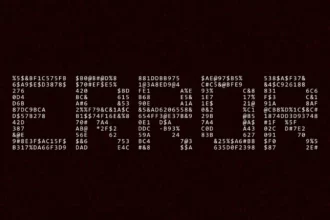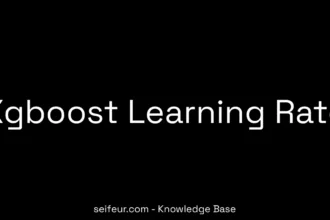Ever tried extracting a golden nugget from a gushing river of text, only to find yourself bogged down by casual chatter? Welcome to the curious landscape of ChatGPT, where amidst the eloquent prose lies the elusive direct quote. Unlike a magic wand that conjures precise words from thin air, the path to quoting this AI demands strategy. In this exploration, we’ll traverse techniques that coax direct quotes from ChatGPT while wrestling with its quirks. Get ready to unravel how you can turn vague responses into shining citations—because every good story deserves a voice.
- To obtain direct quotes from ChatGPT, use prompts that clearly specify you want quotations from specific sources or documents.
- When requesting quotes from your own content, ChatGPT may not reliably provide direct citations, leading to frustration with the tool’s limitations.
- Encouraging ChatGPT to give clickable URLs as sources can improve the reliability of the information provided.
- To accurately represent guests’ statements from podcast episodes, the prompts must be carefully constructed to avoid repetitive responses from ChatGPT.
- When sharing ChatGPT’s outputs, it’s important to credit the AI model as the source of the information, treating it as a derived text.
- Consider experimenting with the quantity of sources in your prompts to get a better yield from ChatGPT, although results may vary.
Table of Contents
ToggleHow to Get Direct Quotes from ChatGPT
Extracting direct quotes from ChatGPT poses a bit of a puzzle, especially for those of us who crave that sweet blend of reliability and accuracy. It can often feel like chasing a wisp of smoke. So, let’s dissect this conundrum step by step, ensuring we maximize our engagement with this powerful tool.
First, it’s crucial to understand the inherent limitations you’re working with. Although ChatGPT can generate text seamlessly, it doesn’t possess the ability to retrieve or cite specific external sources. When asked for direct quotes from your personal documents or podcast episodes, it’s like asking a parrot to recite Shakespeare—while it can mimic phrases beautifully, it lacks access to the original texts.
This limitation leads us into some frustrating territory.
Imagine diving deep into your podcast archives, hungry for that perfect line your guest delivered, only to have ChatGPT spiral into an unending loop of vague generalizations.
It’s maddening! In fact, many users have echoed similar sentiments, finding that when they ask for specificity or direct citation links, the AI frequently falters—the responses can sometimes veer off-topic or pointlessly reiterate old information.
Here’s the kicker: if you’re paying for premium access to ChatGPT expecting it to act as your personal archive assistant or research scribe, you might feel you’re being shortchanged when those precious insights slip through your fingers due to its inability to pinpoint facts accurately.
For users focused on gathering great quotations from their podcast guests, consider adopting a more strategic approach:
- Prepare Well: Before engaging with ChatGPT, compile a list of key episodes and notable moments you’d like highlighted. This will help guide the conversation.
- Simplify Your Queries: Instead of asking directly for quotes, frame your prompt with context. For example: “Can you summarize what [Guest Name] said about [specific topic] in Episode #[Number]?” This might coax out relevant references without the expectation of precise quoting.
- Cross-Verification: Post-interaction with ChatGPT, always cross-check any significant extracted phrases against your original materials. While tedious, this assures fidelity to your guest’s original sentiments.
- User Feedback Loop: If you encounter bad links or inaccuracies in provided information or citations (which is fairly common), don’t hesitate to point it out in subsequent queries. Constantly fine-tuning your prompts based on previous outcomes can incrementally enhance usefulness.
This approach won’t make every challenge disappear—there’ll still be those infuriating moments—but it lays a more grounded foundation for using ChatGPT effectively. Ultimately, think of the AI as more of a brainstorming partner rather than an exact fact-retrieval machine; harness its creative capabilities while remaining vigilant about verifying its output against your trusted sources.
Can ChatGPT Generate Direct Quotes?
You bet it can, especially if you’re talking about books, articles, or even your own text. But here’s the catch: ChatGPT doesn’t always give you citations with those quotes. Think of it like this: It’s like a super smart parrot mimicking what it’s heard, but sometimes it gets the words a little mixed up. You need to check those quotes yourself to make sure they’re accurate.
I’ve had times where I’ve asked ChatGPT for a direct quote from something I’ve written and it’s refused, opting to summarize or analyze instead. It’s like it’s saying, “I know what you’re trying to do, but I’m not going to give you the exact words – I’m going to tell you what it means. ” It’s frustrating, but it’s also a reminder that AI is still learning, and sometimes it gets things wrong.
I’m hoping to see ChatGPT become better at providing accurate citations with direct quotes, but for now, I’m treating it like a powerful tool, but one that needs a little bit of human oversight.
Limitations of ChatGPT in Providing Quotes
The limitations of ChatGPT in providing quotes are more pronounced than many users realize. At its core, ChatGPT lacks the ability to search for and accurately cite external sources. So even though it can skillfully generate text, it does so without the backing of verifiable documentation or direct references to your personal or public archives.
This limitation becomes particularly problematic when users turn to ChatGPT with the expectation that it will seamlessly pull meaningful quotes or citations from their extensive knowledge bases.
A striking sentiment that emerges often is encapsulated in questions like: “Why am I paying for ChatGPT to access my vast knowledge bases if I am not allowed to access that data directly?” This echoes the frustrations many encounter.
When trying to gather quotations from podcast guests, for instance, users may invest significant effort into this process, only to find that ChatGPT’s responses fall short of their expectations. The AI tends to recycle information instead of offering anything genuinely new. Ultimately, this can result in misattributed quotes or fictitious sources.
Moreover, the reality that much of ChatGPT’s training lacked comprehensive human oversight raises red flags. Users should remain skeptical: as studies indicate, around half of the external links provided can lead to irrelevant or non-existent content—adding layers of ambiguity that could support misinformation. Even with advancements seen in GPT-4 and its variations, reliability has only slightly improved.
Given these challenges, users are encouraged to independently verify any quotations generated by AI. Harnessing resources such as library catalogues can be invaluable for checking bibliographic references. Taking this step allows users to establish a solid foundation for their content instead of relying on potentially flawed outputs from AI. This practice fosters a culture of diligence regarding accuracy while ensuring that the representation of podcaster insights remains true and beneficial.
Techniques to Obtain and Verify Quotes from ChatGPT
It’s a common frustration – wanting ChatGPT to spit out direct quotes from sources like books, articles, or your own writing. It can feel like trying to wrangle a cat into a tiny hat! But, here’s the truth: ChatGPT is a powerful tool, but it’s not a magic source of perfect quotes.
Think of it like this: ChatGPT is a really smart parrot. It can mimic what it’s heard, but sometimes it gets the words a little mixed up, and it doesn’t always remember where it heard those words.
You need to be the human fact-checker, making sure the quotes are accurate and the sources are legit.
So, how do you get the best out of ChatGPT for quotes? Here are some tips:
- Be Specific: Don’t just ask “What did [author] say about [topic]?” Instead, try “What is the exact quote from [author] in [book title] about [topic]?” The more specific you are, the better ChatGPT can understand your needs.
- Ask for Sources: Don’t assume ChatGPT will give you citations. Ask explicitly for the source of the quote. You can even try phrases like “Please provide a clickable URL to the source of this quote.” This can help you verify the information quickly.
- Double-Check: Always cross-reference the quotes ChatGPT gives you with the original source. It’s like fact-checking a Wikipedia article – always go to the primary sources to ensure accuracy.
- Use Verification Tools: There are some amazing tools out there to help you verify information. Omni for library searches is a great example. It can help you find the original text of a quote to make sure it’s real.
Remember, ChatGPT is an incredible tool, but it’s not perfect. Always be a critical thinker and double-check everything. It’s like having a super-smart intern who needs a little bit of human oversight. With a little bit of effort, you can get some amazing quotes from ChatGPT!
Citing Sources from ChatGPT
You’re right, citing ChatGPT is a bit of a tricky dance. It’s like giving credit to a brilliant but slightly unreliable friend. Here’s the deal: since ChatGPT doesn’t always provide citations for its quotes, you have to be extra vigilant.
Think of it like this: ChatGPT is a powerful tool, but it’s still learning.
It’s like a super-smart student who sometimes forgets to write down their sources. You can’t simply assume it’s quoting accurately. You have to be the responsible scholar and make sure the information is legit.
So, how do you cite ChatGPT properly? Here’s the breakdown:
- Reference List Entry: When you use a quote from ChatGPT, treat it as a reference just like any other source. In APA style, it would look like this: OpenAI. (Year). ChatGPT [AI language model]. Retrieved from [URL]. You’ll need to replace “Year” with the year the model was accessed and “URL” with the specific link to the ChatGPT interface if applicable.
- In-Text Citation: Like any other source, cite the ChatGPT quote in your text using the reference you just created. For example, you could say something like: “(OpenAI, Year). ” This lets your readers know that the information came from ChatGPT, not from a traditional academic source.
Remember, it’s always a good idea to cross-check any information you get from ChatGPT with other reliable sources. Think of it as a team effort: ChatGPT is a great brainstorming partner, but you’re the one who needs to make sure the final product is solid.
Best Practices for Using ChatGPT for Quote Extraction
To harness the power of ChatGPT for effective quote extraction, apply these best practices:
- Be Specific: The more detailed your prompt, the better the response. Vague requests yield vague quotes.
- Push for Quality: If you notice unsatisfactory quotes, push ChatGPT to expand or refine its answers. Inquire about related perspectives for deeper insights.
- Document Everything: Keep track of your prompts and the context of the responses. This will be beneficial for transparent citations and future reference.
Additionally, it’s wise to reflect on the ethical implications of sourcing quotes from AI. While AI can assist substantially, understanding the boundaries of its function and abilities preserves the authenticity of your message. Ultimately, quotes should illuminate the truths of conversations, narratives, and insights, so apply ChatGPT judiciously.
User Experiences and Case Studies
Many users have successfully utilized ChatGPT for quote extraction, particularly in podcast episodes or content creation. By sharing effective prompts and iterating on responses, they’ve crafted compelling narratives.
For instance, a podcaster reported, “ChatGPT helped me find great quotes from my guests, but I had to validate them against my recordings and other resources.” This highlights the collaborative nature of engaging with ChatGPT: it becomes a supplemental tool rather than a stand-alone source.
In conclusion, while ChatGPT can generate quotes and assist in citation formats, the responsibility of verification rests with the user. This approach strengthens the credibility and trustworthiness of the content produced, ensuring a quality outcome.




